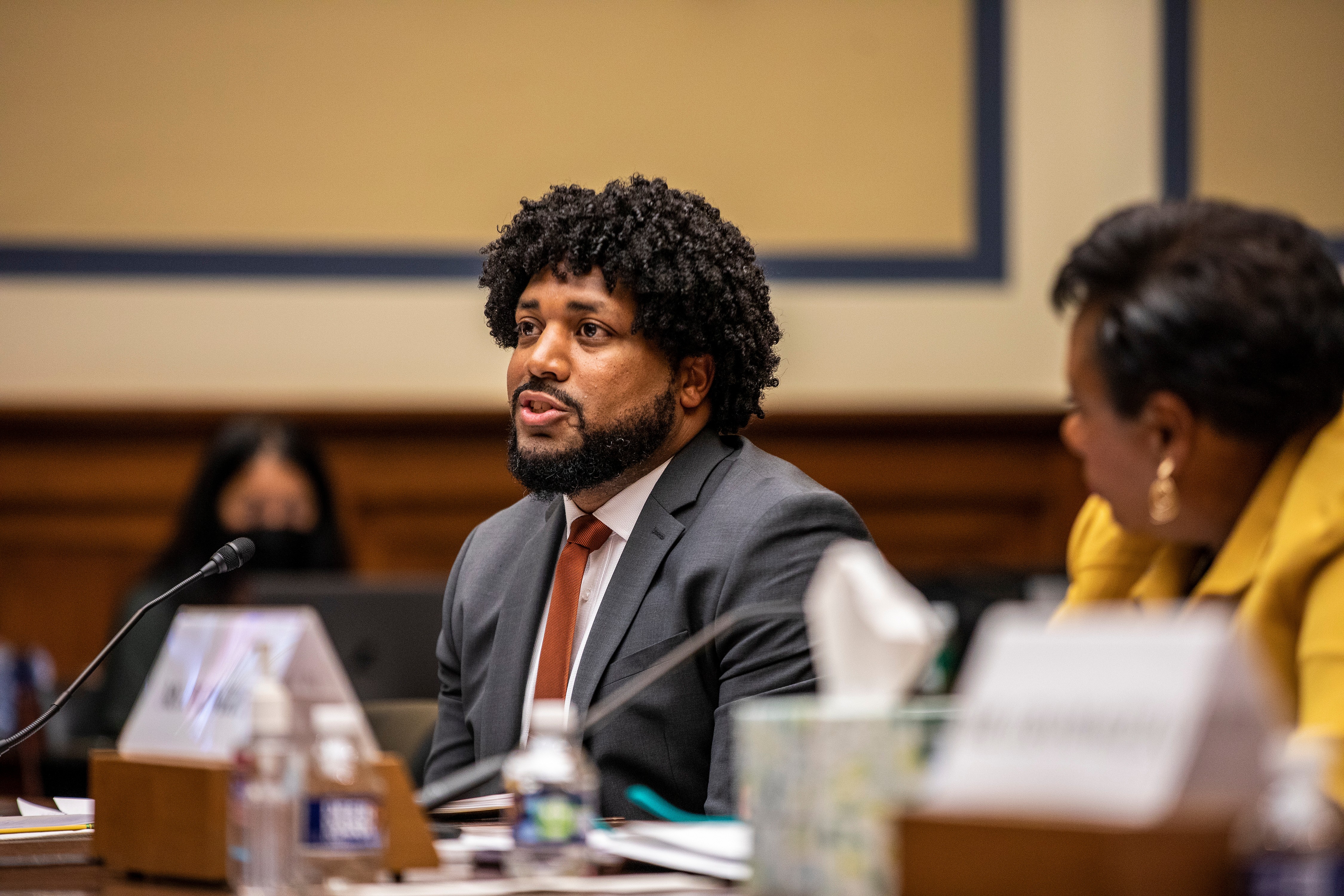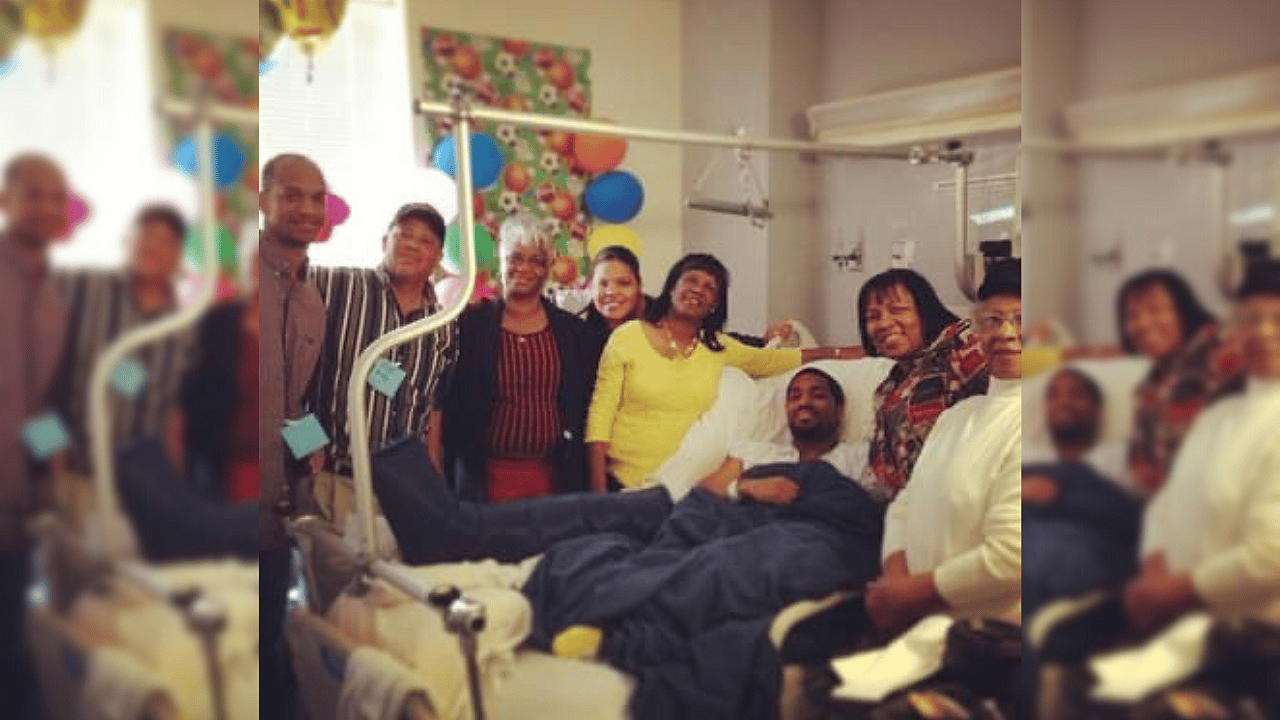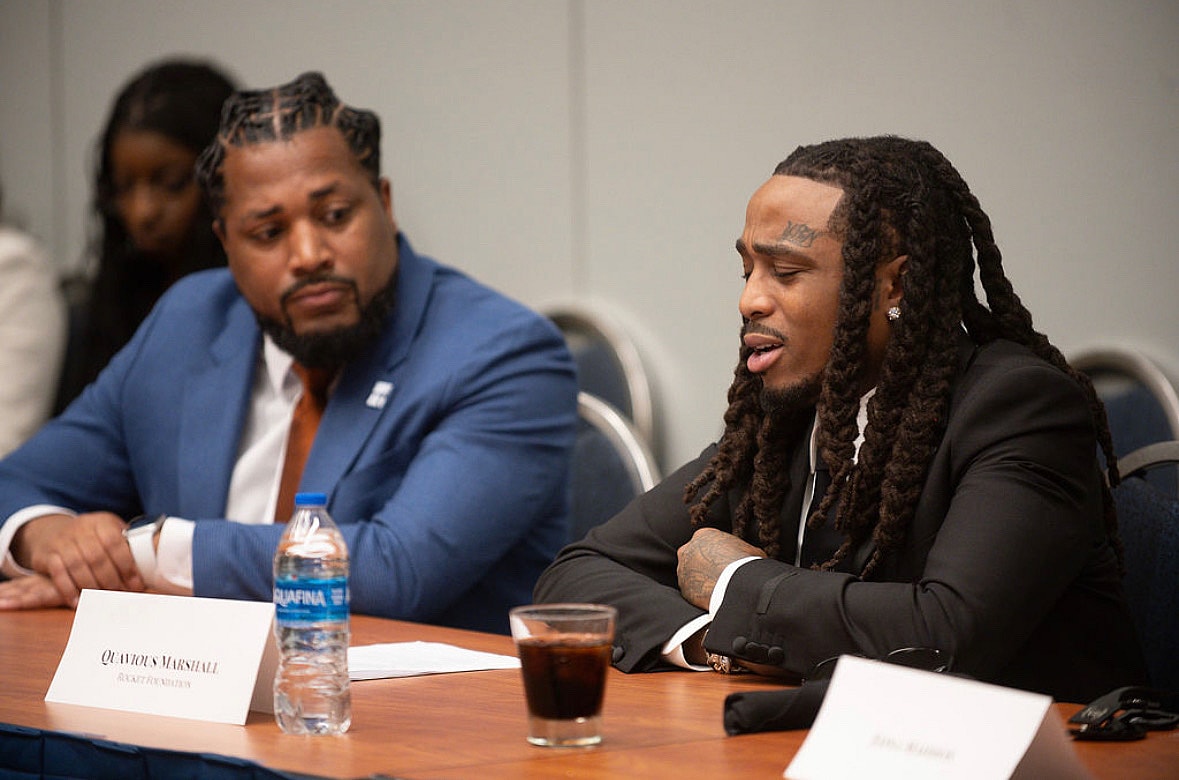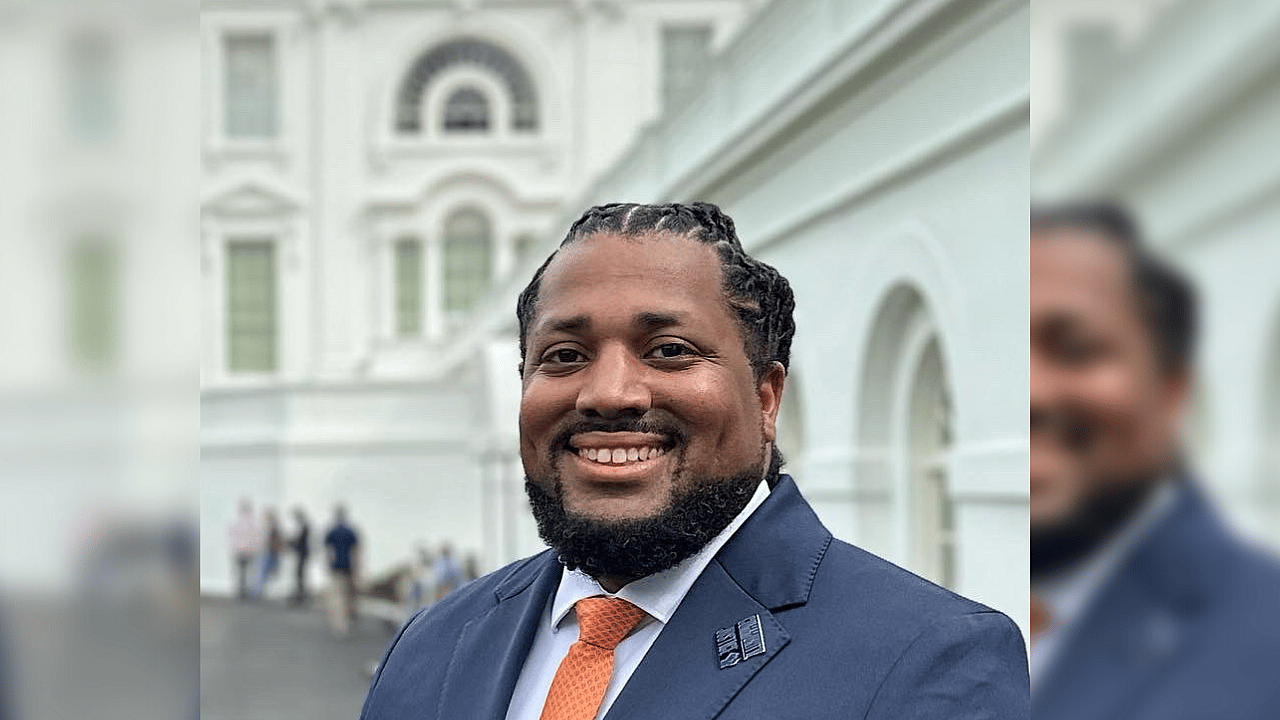For Gregory Jackson Jr., the deputy director of the new and historic White House Office of Gun Violence Prevention, the gun violence crisis and its impact on communities across the country is personal.
At 28, Jackson became a victim of gun violence as an innocent bystander in Washington, D.C., in April 2013. The then-staffer at Organizing for Action, a community organizing group aligned with the administration of former President Barack Obama, almost did not survive his injuries.

“The bullet hit me in two arteries, and so I nearly lost my life due to the blood loss,” Jackson told theGrio. “But even in that moment, I’ll never forget that feeling of just being powerless and vulnerable.”
After surviving the traumatic ordeal, Jackson recalled watching the television and hearing elected officials and leaders “make excuses why they couldn’t take action and couldn’t step up.”
“[It’s] an issue that nearly cost me my life, and this has impacted so many,” said the years-long community organizer and gun violence prevention advocate.
Ten years after a bullet left him in a hospital fighting for his life, Jackson is now serving in a critical role to help lead the White House’s efforts to end the gun violence epidemic that has claimed more than 33,000 lives and injured more than 29,000 people this year alone.
The 38-year-old described the full-circle moment as “surreal.”

He told theGrio, “It’s such an exciting moment to see that…President [Joe Biden] and…Vice President [Kamala Harris] are not just committed to this issue, and not just vocal about this issue, but are willing to truly invest and lead and build infrastructure across government to prioritize this issue.”
Jackson said hiring a survivor of gun violence to help lead the office’s gun violence prevention policy work is a “real testament” that Biden and Harris (who is overseeing the office) are “not only invested in it as a policy approach but really as a philosophy of how we fix this problem.”
As a young Black man and survivor, Jackson knows intimately the intersectional ways that gun violence impacts various communities.
“Gun violence is the No. 1 cause of death for all youth in America. But it’s been the No. 1 cause of death also for Black men in America and the No. 2 cause of premature death for Black women and Latino men,” he explained.
For years, Jackson turned his pain into passion as a community advocate – primarily on the frontlines of the gun violence crisis. His advocacy work at the Community Justice Action Fund led him to advise on policies that ultimately were passed in Congress and signed into law by President Biden.
The Bipartisan Safer Communities Act enhances background checks and provides $250 million in community violence intervention and prevention initiatives. Those federal dollars are being sent to grassroots organizations in Black and brown communities to help solve the issue of gun violence and provide support to those impacted on the local level.
“Unfortunately, these are communities that have been overlooked and neglected for a long time,” said Jackson.

The White House Office of Gun Violence Prevention will be tasked with implementing the 2022 law and Biden’s executive orders. In order to do that, Jackson said it would take “real organizing,” which is something he has years of experience with as a former community relations director for the D.C. Mayor’s Office, field director for the Democratic Congressional Campaign Committee, among other roles over the past decade.
“We had to figure out how to meet people where they are, how to connect with folks who are hardest to reach, and how to ensure that we’re connecting a message that aligns with the real challenges and problems that they’re facing in America,” said Jackson. “And that’s precisely what this office will do.”
He continued, “We’re connecting with students who have been impacted by violence on their campus, parents who have lost a loved one due to inner-city community violence, or a wife who’s lost her husband to suicide.”
The White House will focus on connecting people impacted by gun violence to solutions the administration is seeking to advance and prevent occurrences of gun violence.
Jackson told theGrio that there will be a “great deal of engagement and inclusion” in the work of the White House Office of Gun Violence Prevention.
He and his colleagues at the new office have already hit the ground running.

“Day one was a whirlwind of downloading all of the amazing progress that has happened to date. And then discussing how we can build on that,” said Jackson.
The new deputy director said that in addition to connecting with communities that are hardest to reach, some of the office’s top priorities will be strengthening relationships across agencies on the federal and state levels.
As President Biden and Vice President Harris continue to join anti-gun violence activists in calling for Congress to go further than the Bipartisan Safer Communities Act like banning assault weapons and high-capacity magazine guns, Jackson said it’s important not to forget “we’ve passed the biggest and largest and most impactful law to address gun violence in 30 years.”
“There’s so much that can be done within the jurisdictions of those laws that we want to really focus and build on. And we don’t want to overlook that that was done with bipartisan support from both parties,” he told theGrio.
“We want to explore what all this White House can do to support those bipartisan efforts to address this crisis, whether it be investing in hospital-based strategies, strengthening victim services, looking at the mental health and wellness resources for those who have been most impacted.”
Jackson added, “But most importantly, ensuring that responsible gun ownership is the reality for all Americans.”

Gerren Keith Gaynor is a White House Correspondent and the Managing Editor of Politics at theGrio. He is based in Washington, D.C.
TheGrio is FREE on your TV via Apple TV, Amazon Fire, Roku, and Android TV. Please download theGrio mobile apps today!

